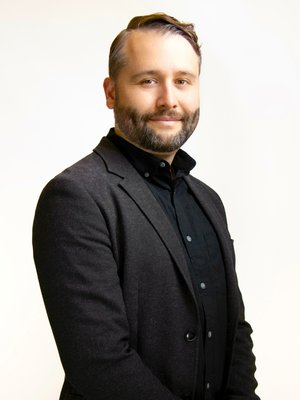Brendan Sanchez is the Principal of Access Architecture, the Presenting Sponsor for our Gathering for Change event on October 19th, 2023. Brendan recently sat down with Council for the Homeless to discuss Access Architecture’s mission and the importance of community connection when creating affordable housing
 Tell us a little bit about Access Architecture’s mission.
Tell us a little bit about Access Architecture’s mission.
We believe, and studies show, that humans need connection. When we don’t have positive connections in our lives, there is a direct correlation to negative health outcomes. Access Architecture’s mission is to use design for good and to create places that help people create positive and meaningful connections.
What’s one thing you want the community to know about Access Architecture’s work?
We’re passionate about having a real and positive impact on our community. We do this through our community-based design work, community engagement, and volunteer efforts.
Why is your work meaningful to you?
I grew up in Vancouver. Our work is important because it’s giving back to the community that has played such an important role in my life. The challenges Vancouver faces are the same challenges found across the country. It’s going to take all of us rolling up our sleeves and working in our own backyards to solve the problems we face in a way that puts people and the planet first.
Can you explain trauma-informed architecture and its importance?
Trauma-informed design starts with the understanding that the overwhelming majority of us carry some trauma with us, some much heavier than others. It could be historical trauma or something more present and acute. Design and the spaces we inhabit are not neutral. If we don’t design our spaces intentionally, they could have harmful unintended consequences. For us, trauma-informed design is being intentional with our design decisions to create spaces that are healing and restorative.
Why is it important to you to work with CFTH?
Like Access Architecture, CFTH is committed to ensuring that our community is accessible and supportive for all our community members. We both recognize that access and opportunities are structurally imbalanced in our society and believe it is our responsibility to use the resources and platform we have to serve those who have been historically marginalized and/or harmed by these structures.
You’ve worked on several permanent supportive housing developments, including The Meridian and The Elwood, in Vancouver. Can you explain why these developments are important for our community? We need housing of all shapes and sizes. The solution to our housing crises needs to look as diverse as we are as humans. There is no one size fits all, and everyone has different needs. Permanent supportive housing fills a need in supporting our community members that other types of affordable housing can’t do. It’s our responsibility as members of this community to look out for each other, and that includes those who may need additional support beyond simply housing.
What are you looking forward to about Gathering for Change?
I’m looking forward to connecting with others who are also passionate about supporting this community and are willing to roll up their sleeves with me. I’m excited about the energy that will be generated for us to come together and work towards the common goal of ensuring we’re looking out for all of our community’s members, together.
